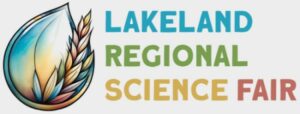Skip to main content
Skip to footer
Rules of the Fair
🔥 Safety & Ethics
- Mandatory committee approval for projects involving animals or humans.
- Read through the Safety and Ethics resources to make sure your project follows Youth Science Canada’s safety and ethics guidelines.
- If in doubt, reach out to Chris at [email protected].
🐾 Research involving animals or humans
- Projects involving animals or humans require LRSF Safety and Ethics Committee pre-approval.
- Human-participant projects must include signed Informed Consent Forms in the logbook.
- Non-conforming projects will be disqualified.
🔍 Project Types
- Your project must either be a Discovery Project or an Innovation Project.
- Discovery: Answering scientific questions.
- Innovation: Solving problems or improving existing solutions.
- Or, If you’re in grades 4-6, or, you don’t want to compete for the Canada-Wide Science Fair, you could also do:
- Research: Tell us all about your favourite subject, don’t worry about questions or creating something new.
- Project types are explained further here.
📒 Project Documentation
- Maintain a detailed logbook (dates, observations, results).
- This is required for those competing to attend the Canada-Wide Science Fair, but optional for everyone else.
💡 Presentation
- Projects require a visual display (board, models, demos).
- Electronic displays (like slides) are optional.
📸 Media Consent
- Participation implies consent to use select details (name, age, grade, school) and media (photos, recordings) for LRSF purposes.
🚫 Exhibit Restrictions
- If you’re competing for the Canada-Wide Science Fair, you can only participate in one YSC-affiliated science fair per year.
✒ Project Originality
- Your project should be all your own ideas and work—no copying from others! If you use someone else’s work without giving them credit, your project won’t be allowed in the science fair.
- Previously winning projects are ineligible.
